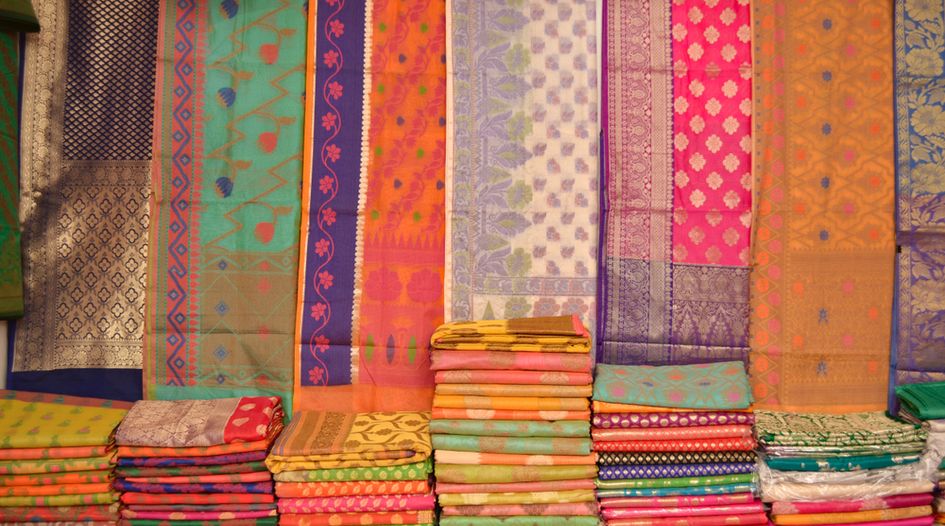KVIC loses out on interim relief in cultural symbol infringement dispute

The Delhi High Court has denied interim relief to India’s Khadi and Village Industries Commission (KVIC) against Girdhar Industries in a case that involves an interesting juxtaposition between trademark law and cultural heritage symbols (Khadi and Village Industries Commission v Girdhar Industries & Anr).
Case background
‘Khadi’ is a term for Indian natural fibre cloth which is hand-spun on a charkha (a spinning wheel). It became a cultural symbol in the early 1900s at the time of the Indian independence movement, particularly after Mahatma Gandhi’s public encouragement to spin Khadi cloth. To facilitate the establishment of Khadi as an Indian brand, the KVIC Act was enacted in 1956, giving the KVIC the power to control, regulate and authorise the use of the word on products by holding a trademark registration under most classes.
According to the Khadi Mark Regulations 2013, no textile can be sold as a Khadi product without bearing a tag from the KVIC. To be eligible for such a tag – and to therefore be authenticated as being made from genuine Khadi material – the product must be purchased from a government-cleared Khadi institution. The KVIC owns several registrations for word and device KHADI marks in English and Hindi, both in artistic and logo form, including ones that feature charkha logos. The Khadi brand has enjoyed a modern resurgence – it is marketed extensively in India and internationally, and several Khadi products are very popular.
The KVIC’s earliest trademark registration for KHADI dates back to 25 September 1956. Although this application was filed on a proposed use basis, the KVIC has consistently used the mark for various goods and services. On the other hand, the defendant – Girdhar Industries – only registered its mark GIRDHAR KHADI in 2005, claiming use of the mark for soaps and detergents since 2001.
The dispute
The crux of the KVIC's argument revolved around its prior use and registration of KHADI. It maintained that Girdhar Industries' use of GIRDHAR KHADI not only violated the KVIC’s prior trademark rights, but diluted the value of a unique historical brand by misleading consumers. Girdhar Industries countered that its use of GIRDHAR KHADI predated the KVIC's registrations and thus no infringement was taking place.
After listening to both parties, the Delhi High Court refused to grant interim relief to the KVIC. This was predicated on several grounds – most crucially, the court determined that since Girdhar Industries possessed a valid registration for GIRDHAR KHADI, it could not be accused of infringement.
On the issue of passing off, the court clarified that it was crucial for the KVIC to prove that it had acquired the necessary goodwill and reputation by the date that Girdhar Industries started using the contested mark. Any goodwill or reputation attached to the KVIC’s mark after this specific date held no significance for making a legal assessment. Finding that the KVIC was unable to demonstrate that KHADI had acquired the necessary goodwill and reputation in connection with soaps and detergents prior to Girdhar Industries' use of its mark, the court refused to injunct use of the GIRDHAR KHADI mark.
Looking ahead
This decision highlights that in cases where an infringement claim is made against a registered trademark, it can be difficult for a plaintiff to prove that the registration is invalid. Further, for an action of passing off to succeed, proof of goodwill and reputation prior to the claim of use of a similar mark by the defendant is key.
The court's stance also brings to light the challenges faced by entities such as the KVIC in safeguarding cultural heritage symbols against commercial misuse and how to protect them without stifling innovation or competition.
WTR recommends
Sanofi’s collegiate approach to combatting genericism
Brand protection at the India border: insights and strategies from the front line
Use it or lose it: increasing risk of non-use cancellation in China
This is an Insight article, written by a selected partner as part of WTR's co-published content. Read more on Insight
Copyright © Law Business ResearchCompany Number: 03281866 VAT: GB 160 7529 10

